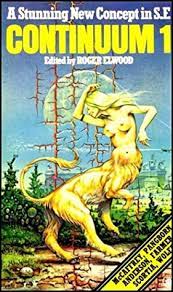Because the text is a letter, the narrator/letter writer is free to interrupt his narrative with exposition:
the War of Judgment destroyed some cities;
however, the subsequent famine, plague and political collapse killed more;
population had grown while resources were depleted;
(this sounds familiar);
records and apparatus were too abundant for utter destruction;
barbarians burned libraries but other men preserved books and knowledge;
not ignorance but lack of resources prevented rebuilding;
technology had to be applied to biology;
the Maurai Federation is the only great power but does not understand the many other diverse cultures that have developed separately.

3 comments:
Thing is, resources are not a fixed sum.
That was the fallacy behind that "peak oil" nonsense a few years ago... but thirty years later, after immense consumption (exceeding all the proven reserves in 1990) the available oil reserve now is -larger- than then.
Because technological innovations turned things like the Bakken Shale into economic resources.
(So is the amount of coal available, too -- it turns out that Botswana, to take just one example, has 217 billion tons of accessible coal.)
The problem is not lack of coal or oil, but overabundance of atmospheric carbon.
Same with every other natural resource.
Eg., in 1910, wheat was at about one $ US a bushel.
In 2022 purchasing power, that's equivalent to over $80 a bushel!
Despite their being seven times as many people on the planet now, the price of a basic foodstuff has gone -down-, drastically.
In 2022, the price of a bushel of wheat is $8.00, more or less -- which in 1910 terms would be about $0.08 (incidentally about the price of the ruble, right now).
In 1910, you couldn't have produced wheat at $0.08 per bushel; it was physically impossible.
Any form of static analysis of resources based on animal-based ecological studies just doesn't apply to a civilization with the scientific method and a market economy.
Now, in pre-industrial times, upper ecological limits -did- apply to human beings.
Eg., the population of Britain had an upper limit in the 4-6 million range. It hit that limit in late Roman times around 375 CE, fell, got back up to it in about 1300 CE, fell again, picked up to that level again in around 1600 CE, remained static or fell slightly until the 1720's...
And then it began its modern rise (67 million or so, now, IIRC).
Kaor, Mr. Stirling!
And to correct that overabundance of atmospheric carbon, I favor phasing out fossil fuels in favor of nuclear energy and, later, a space based solar power system.
We have better uses for oil than to simply burn it, or to be blackmailed by tyrants or barbarians!
Ad astra! Sean
Post a Comment